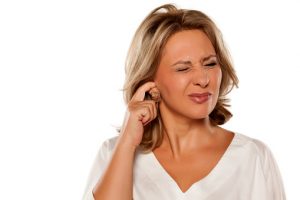 When it comes to what’s good for your health, there are facts, there are myths, and then there’s this gray area of assumptions. What’s done by the majority is often assumed to be the right thing to do, despite medical professionals advising otherwise.
When it comes to what’s good for your health, there are facts, there are myths, and then there’s this gray area of assumptions. What’s done by the majority is often assumed to be the right thing to do, despite medical professionals advising otherwise.
Take ear hygiene, for example. The overwhelming majority of people use cotton swabs to clean their ears. But ask any ear doctor whether this is a good idea—the simple answer is no. To quote a warning from the new earwax guidelines released by the American Academy of Otolaryngology – Head and Neck Surgery Foundation, don’t stick anything smaller than your elbow in your ear. (By the way, take any package of cotton swabs and read the label on the package carefully—none of them suggested sticking them in your ear.)
Advertisement
Contrary to popular belief, there’s no harm in having a bit of earwax. It protects your ears from infection and lubricates the outer ear canal.
Many people are so keen about cleaning every bit of earwax out for fear of impaction, but the truth is, the risk is pretty low. The self-cleaning mechanism in your ears will take care of any excess wax. If you don’t have any ear infections or other conditions, cleaning your outer ear with a washcloth soaked in warm water and wrapped around your index finger is enough.
As we get older, the different functions in our body gradually slow down and become less efficient than they were in our younger years. One of these age-related changes is the dryness of the inner ear. As a result, up to one-third of people over the age of 65 experience earwax impactions. Another risk factor among the elderly is the use of hearing aids. People who wear assistive hearing devices get impacted wax more often, possibly because the devices promotes wax production and don’t let the ear drain it out properly.
Even if you don’t usually use cotton swabs to clean your ears, you may think it’s a good idea to use them to clear the impaction. Don’t. Neither with cotton swabs nor with any other instruments. You risk pushing the wax deeper into the canal (aggravating the problem) as well as damaging the eardrum and the small bones in the ear. Ear drops are really the only treatment you can safely try at home to relieve that fullness in the ear, but again, only if your ears are otherwise healthy and the impaction isn’t too serious. As with any other problem you experience, it’s best to consult with your doctor to avoid any complications.
Advertisement
If you’re a hearing aid user, don’t skip those regular checkups with your audiologist, who can clean your ear canals if necessary. Next time you go, don’t forget to ask the doctor to show you how to take care of your device and replace its wax trap.
As you can see, a little bit of caution here and there can go a long way to benefitting your hearing. And the best way to help your ears get rid of excess earwax? Leave them alone and let them do their job.
Related: Hearing tests in seniors: Screening for hearing loss in elderly
